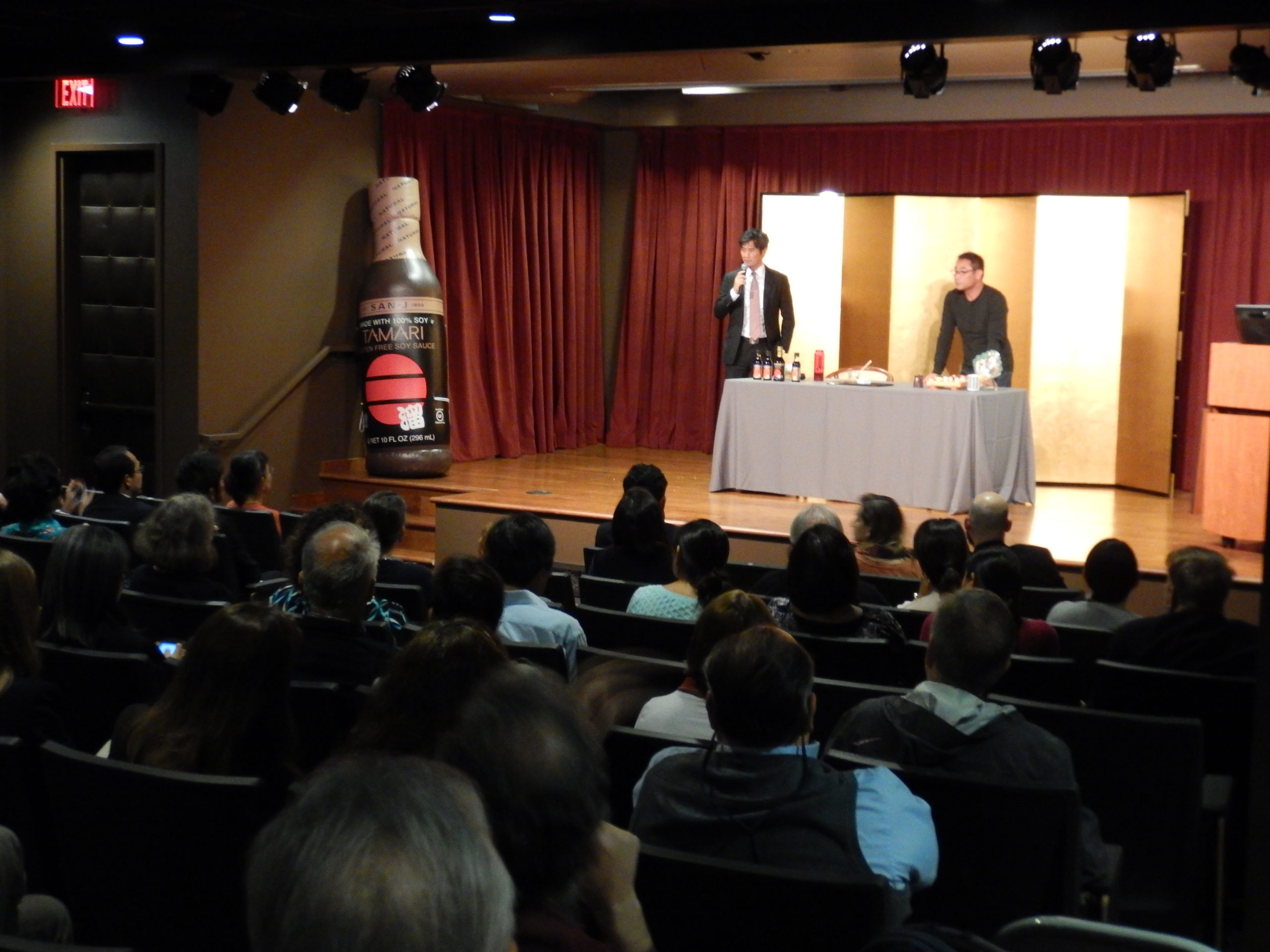Fermentation is a critical process to brew our Tamari soy sauce. I had the opportunity to talk about fermentation at a recent event, Secrets of Washoku. It was held by The Japan Information & Culture Center (JICC), which is part of the Embassy of Japan in Washington DC. The JICC’s goal is to promote better understanding of Japan and Japanese culture by providing information and events to the American public.
Local guests from the Japanese food industry were gathered to share the unique qualities of traditional Japanese cuisine and food culture with the greater Washington DC community. The result was a two-part series covering different types of Japanese food.
The maximum capacity for the event was 140 people. Registration was full just one day after the Embassy of Japan announced the event. I was delightfully surprised to find out that so many people have an interest in fermentation. The event started with my presentation about soy sauce, which is one of the most well known fermented foods of Japanese cuisine. Fermentation is a process in which sugars and carbohydrates are broken down into simpler compounds through the use of probiotic microorganisms. Throughout Japan’s long history, fermentation has been a prevalent method of preserving food, creating new flavors, and improving health. With the process of fermentation and aging we are able to create a rich and smooth tasting tamari. I would be weary of any tamari that is created with shortcuts to speed up the up to 6-month process.
We also heard from Mr. Utagawa, an owner of Japanese restaurants in Washington DC called Daikaya and Sushiko. He talked how fermented ingredients are used in Japanese cuisine. Following the presentation, we had a question and answer session. There were so many interesting questions from attendees, which showed a high level of interest in fermentation and Japanese cuisine.
Make Your Own Tamari Kit
I brought tamari making kits as a gift for attendees. They’re similar to beer making kits you can find in stores. This was the first time we’ve made a kit like this and I was not sure if you can create a flavorful Tamari with this kit as tamari making requires a long period of time and labor to shake it daily for proper fermentation. I was not sure if people would actually like to try making their own Tamari, but 70% of the attendees requested for the kit! I’m really looking forward to hearing about their Tamari making experience.
For more information about The Japan Information & Culture Center (JICC), visit their website.
Back to Top

